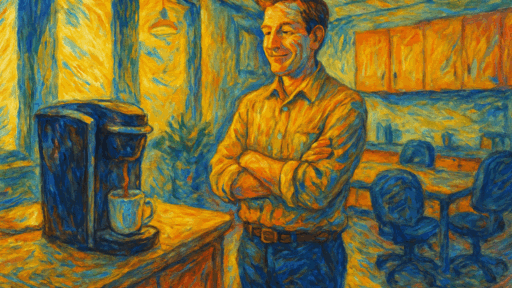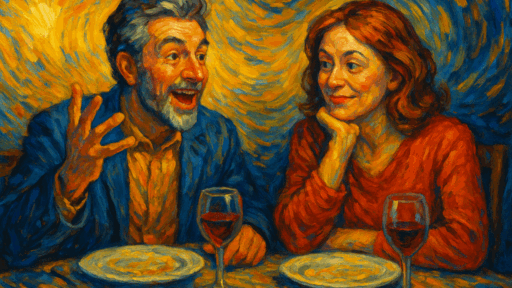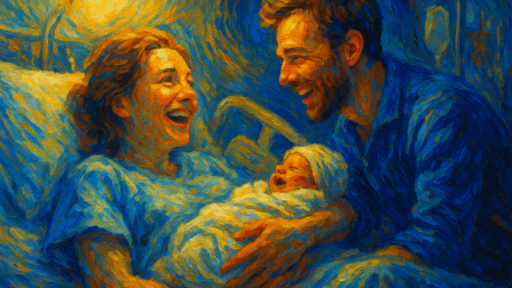Part 3 of 5 of My Journey From Faith.
“And in that moment, I realized it wasn’t just God we’d stripped the mystery from—it was everything.”
In the beginning, faith still felt like conversation.
God and I had a rhythm. I’d talk, and somehow the world would answer back—a lyric on the radio, a line of scripture, a quiet conviction that settled into the space behind my ribs.
I loved that feeling—that quiet pulse of presence.
I carried it with me into everything I did.
When my wife and I started volunteering with the youth group, it felt like purpose made visible. Wednesday nights were chaos in the best way—kids singing too loud, the smell of cheap pizza, the bass from the worship band rattling the folding chairs.
I’d stand in the back, hands raised, trying to mean every word.
During small group, we’d pull our chairs into a circle. I’d ask questions I already knew the answers to.
“What’s God teaching you this week?”
“How can we be more like Jesus?”
I loved their honesty—their stories about parents and heartbreaks and football games. But somewhere between the verses and the prayer requests, something in me started to feel off.
The same words that once felt alive began to sound rehearsed.
I’d open my Bible and feel like I was reading sheet music for a song I no longer remembered how to sing.
So I studied harder. Read thicker books. Went deeper into theology, apologetics, doctrine. If I could just understand God more precisely, maybe I’d feel Him again.
It didn’t feel like drifting—it felt like growing.
Until it didn’t.
The more I learned, the more God became a diagram.
Verses cross-referenced. Attributes categorized. A system so elegant it could fit on an index card.
I was learning about God the way an engineer studies blueprints—tracing the lines, admiring the design, forgetting there’s supposed to be a house you actually live in.
Inside that world, everything had an answer.
Every doubt had a verse. Every tragedy had a purpose.
We called it faith, but it was really control.
And control can look a lot like devotion if you squint hard enough.
I remember one night, after youth group, a kid asked me why God would let his dad lose his job.
I told him God was still with them, that maybe this was His way of drawing their family closer together.
I wanted to believe it.
I think I did.
But the words fell flat—like something I’d memorized, not something I knew.
That moment haunted me.
Not because I didn’t believe it—I still did—but because it felt like I was quoting God instead of speaking to Him.
It was around then that I started to notice how small my world had become.
Most of my friends were Christians. My books, my music, my conversations—all orbiting the same set of ideas. It was safe, predictable, airtight.
I didn’t call it a bubble then, but that’s what it was.
And inside that bubble, I was everything I was supposed to be—faithful, disciplined, informed.
But intimacy had quietly left the room.
One night, while leading discussion, I asked the kids, “Why do you think God loves you?”
Silence.
A few nervous laughs. Shuffling feet. Nobody wanted to go first.
Finally, I said, “It’s something we take for granted, almost a rhetorical question. But God’s love is an absolute mystery.”
Finally, I said, “It’s something we talk about like we understand it. But God’s love isn’t logical. It’s the one mystery that refuses to be explained and still asks to be believed.”
I hadn’t planned to say it. It just came out.
And as soon as it did, the room felt still.
The words hung there, strange and right at the same time.
Because deep down, I knew I didn’t treat God’s love as mysterious anymore.
I treated it like math.
You sin. You repent. You’re forgiven.
Clean equation.
No wonder left.
I went home that night and sat in the driveway for a long time before going inside.
The car was quiet. The streetlights hummed.
And for the first time in years, I admitted to myself that maybe knowing so much had cost me something I hadn’t meant to give up.
I didn’t leave the bubble that night.
But I did feel it stretch, just enough to let a little air in.






